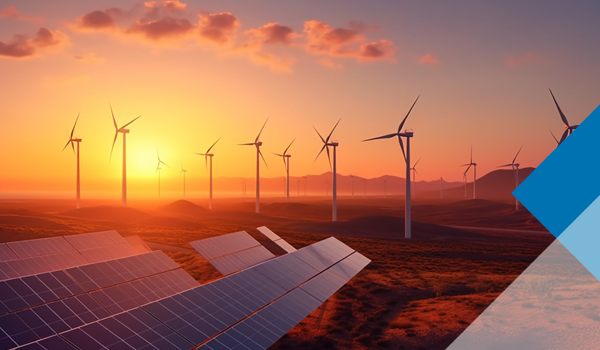 Introduction
Introduction
During November 2023 National Treasury released additional information relating to the new enhanced renewable energy tax incentive which is available to businesses in certain circumstances. The incentive takes the form of an enhanced capital allowance under the newly inserted section 12BA of the Income Act No.58 of 1962. Below the most important features of the new allowance are briefly discussed.
Important Features
- ObjectiveThe objective of the incentive is to encourage expeditious private investment in electricity generation from renewable energy sources, thereby assisting in easing the current energy crisis. It aims to assist those businesses that normally would not have been able to afford an investment in renewable energy.
- TimeframeThe incentive will only be available for two years, from March 2023 to 28 February 2025, to encourage swift investment in renewable energy.
- EligibilityEntities who conduct business activities and who are registered for income tax are eligible to claim the deduction, including companies, close corporations, trusts and sole proprietors.
- QuantumA deduction of 125% of the cost of qualifying assets (including the cost of supporting structures) can be claimed against taxable income in the year the asset is brought into use for the first time.
- RequirementsThe following requirements must be met to be able to claim the incentive:
- The asset must be owned by the business.
- The asset must be used in the production of income.
- The assets must be brought into use for the first time between 1 March 2023 and 28 February 2025.
- To guarantee that the capacity is in addition to what the business was already producing, only new and unused assets are eligible.
- Assets must be used to generate electricity from any of the following sources:
- Photovoltaic solar energy,
- Concentrated solar energy,
- Wind power,
- Hydropower,
- Biomass compromising organic wastes, landfill gas or plant material.
- For the duration of this temporary incentive, no electricity generation limits apply.
- Qualifying assetsAssets used to generate electricity will qualify for the enhanced incentive, including supporting structures to which these assets are affixed to (if certain requirements are met).If storage (e.g. batteries) and conversion (inverters) assets form part of a system that together with other assets (e.g. solar panels), produce electricity, it is likely that the batteries and inverters will also qualify.However, if a business is merely drawing power from the grid and storing it to minimise the impact of loadshedding, such storage assets will likely not qualify, as it is not aligned to the government’s policy objective of encouraging more generation capacity.
- FinanceTo assist businesses to invest in renewable energy, the tax incentive is complemented by the Energy Bounce-Back (EBB) Loan Guarantee Scheme. EBB loans will be available via participating banks, non‐bank SME finance providers and Development Finance Institutions (DFIs).
- LeasingOperating lease – Lessors who lease qualifying assets under operating lease contracts, will be able to claim the incentive (provided all other criteria is met), as ownership of the underlying asset is a prerequisite for claiming the incentive.Finances lease – In finance leases the ownership from lessor to lessee normally only happens at the end of the lease period. For this reason, the lessor would own the generation assets for the duration of this incentive and be able to claim the deduction.
- ExclusionsIf a small business corporation chooses to utilise the section 12BA deduction, it cannot also make use of the section 12E deduction. It is one or the other.Where qualifying assets are purchased by means of a combination of own funds and government grants, the business can only benefit from the portion of expenditure incurred using its own funds, for purposes of the proposed section 12BA allowance.
- RecoupmentIf the business dispose of the assets where an enhanced renewable energy tax allowance was claimed, there will be a recoupment. If the recoupment takes place before 1 March 2026, there will be an additional recoupment, limited to 25% of the cost of the assets being disposed. If the assets are disposed of from 1 March 2026 onwards, the normal recoupment provisions apply.
Disclaimer
Information in this article is based on the latest available information as on 21 November 2023. It should be noted that the legislation is still subject to potential changes from Parliament. The legislation will only become final once it has been promulgated, which is expected to occur during January 2024.
If you have any queries, please do not hesitate to contact Petri Westraadt on pwestraadt@fhbc.co.za
Source Reference:
National Treasury – FAQ Enhanced renewable energy incentive for businesses (November 2023)

